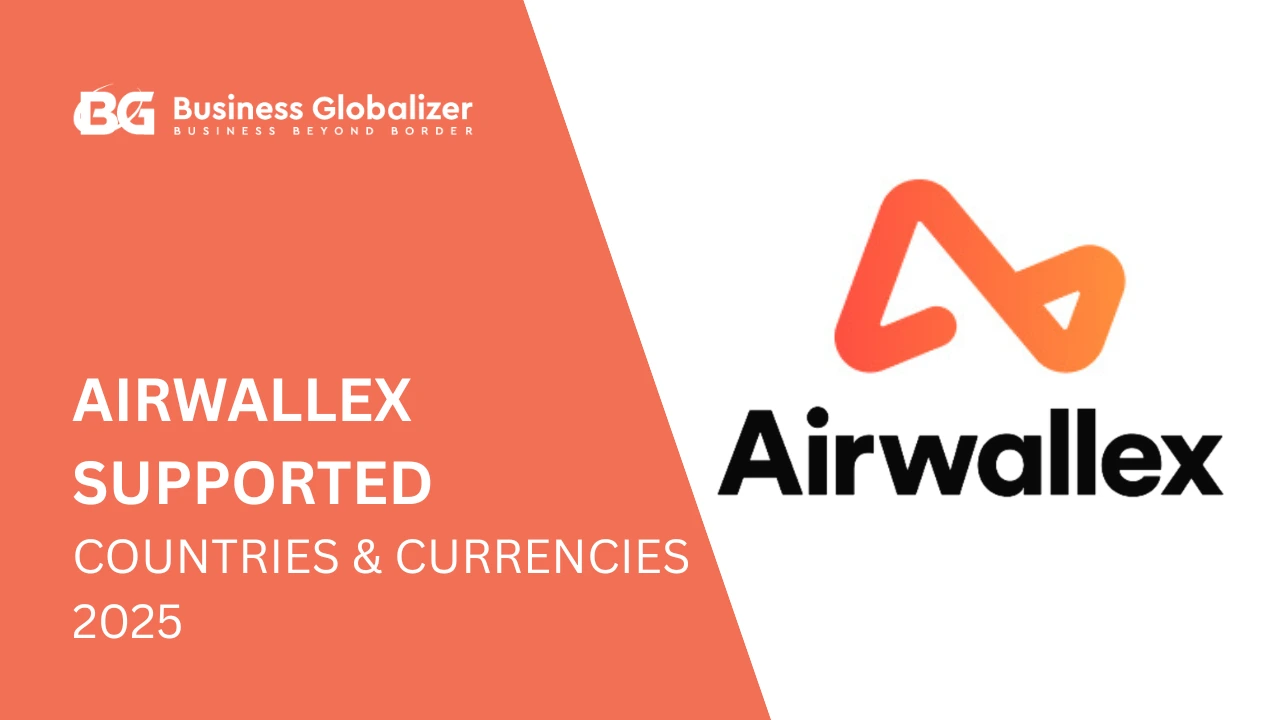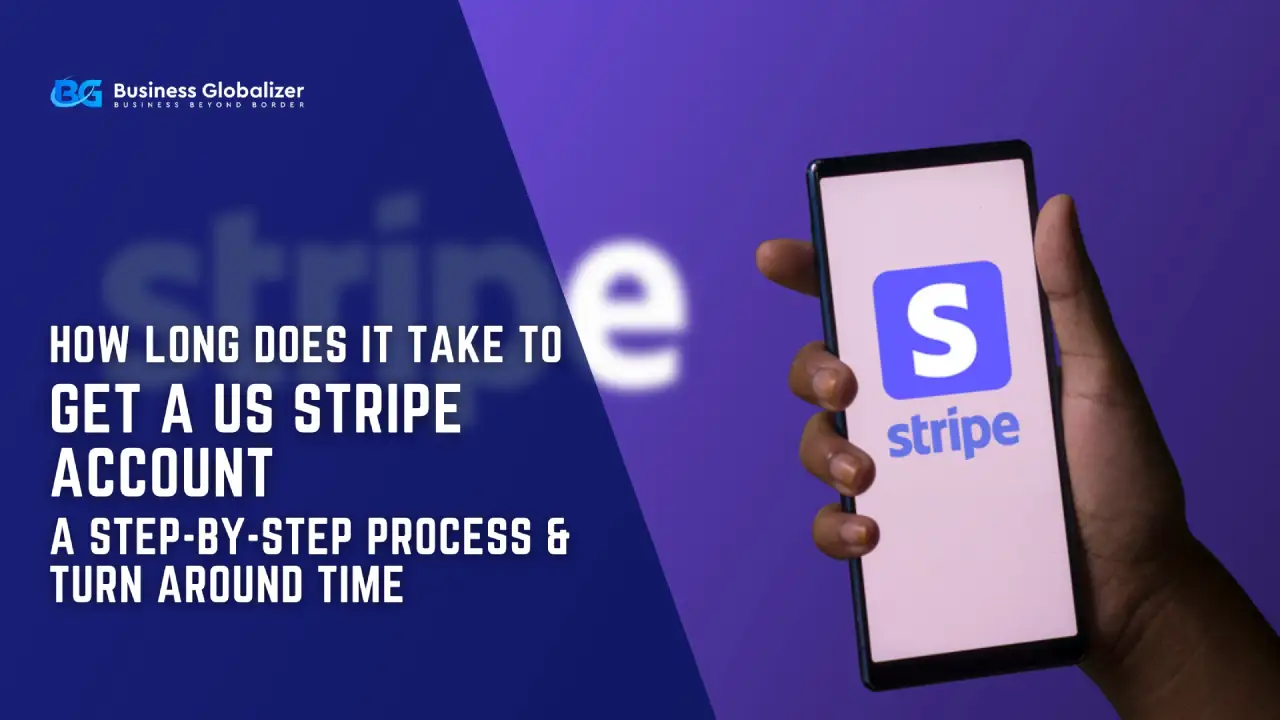So, you’re a non-resident entrepreneur ready to step into the US market? One of the smartest first moves you can make is opening a US bank account as non resident. Whether you’re launching a startup, managing an online business, or scaling a global venture, your finances need a reliable home in the States.
The good news? You don’t have to fly to the US or jump through a hundred hoops. Today, many banks, especially fintech platforms, make this process surprisingly accessible.
Let’s walk you through the steps to open a US bank account as a non-resident.
What Is a US Bank Account?
A US business bank account is a dedicated financial account tied to your US-registered company. It lets you:
- Accept USD payments from clients or platforms
- Pay suppliers and contractors
- Hold money in the U.S. securely
- Integrate with platforms like PayPal, Stripe, Shopify, Amazon, etc.
It’s also a must-have if you want to build a US-based financial reputation, access credit, or scale smoothly in the American market.
Can Non-Residents Open a US Bank Account Online?
Yes, you can. Especially if you’re using fintech platforms like Mercury, Relay, or Wise.
- Traditional banks (like Chase or Bank of America) usually require in-person visits, making them harder to access.
- Fintech banks, however, are tailored for remote founders. You can apply online and get approved without setting foot in the US.
The key is to set up a legal US company first, typically an LLC or C Corporation, then apply with the right documents (we’ll get there shortly).
Benefits of Having a US Bank Account as a Non-Resident
- Professional Credibility: Shows customers, platforms, and partners that you mean business.
- Payment Gateway Integration: Stripe, PayPal, Shopify Payments, etc., usually require a US business account.
- Easy Currency Handling: Get paid in USD without heavy conversion fees.
- Better Exchange Rates: Some fintech banks offer fairer forex rates.
- Simplified Taxes: Keep business income separate for smoother tax filing.
- Global Trust: US banks are globally respected and secure.
Non-Resident Banking Options in the US
Here are the main options:
- Fintech Business Banks (best option): Mercury, Relay, Wise Business
- International Banks: HSBC, Citibank (requires strong documentation)
- Traditional Banks: Wells Fargo, Bank of America (in-person visit required)
- Correspondent Banks: Offered through your local bank’s US partnerships
Best Banks for Non-Residents to Open US Accounts Online
| Bank | Account Type | Monthly Fees | Remote Access | SSN Required? | Great For |
| Mercury | Business Checking | $0 | Yes | Yes | Startups, SaaS, eCom |
| Relay | Business Checking | $0 | Yes | Yes | Agencies, LLCs, consultants |
| Wise Business | Borderless Business | Variable | Yes | Yes | Global transfers, multi-currency |
| Bluevine | Business Checking | $0 | Yes | Yes | High-volume digital businesses |
Important Note: Eligibility and requirements vary widely by account type and residency status. Always confirm with the bank directly, as online access for non-residents is limited and may require a U.S. address or business justification. Traditional banks like Chase, BoA, or Citi usually require in-person visits + SSN.
Documents Required to Open a US Bank Account for Non-Residents
As a non-resident, you need a few necessary documents to open a U.S. bank account. You must prove your identification before applying for an account and provide the required documents and payments. For business accounts with fintech banks (like Mercury, Relay, etc.), you’ll typically need:
- Company documents.
- EIN official letter.
- Passport.
- Local bank statement.
- Complete business website.
- Phone number.
- Business mail with access.
Note: It may vary for different bank accounts.
How to Open a US Bank Account from Abroad?
The procedure for opening an account could be slightly different for different banks. We will explain a simple procedure on behalf of convenience for non-residents.
- Form a US Company
It’s a must. Start by registering an LLC or C Corp; usually in Delaware, Wyoming, or New Mexico. If you want, you can check our tailored U.S. company formation packages.
- Get an EIN from the IRS
An EIN is your company’s tax ID. You can apply online or through a certified agent.
- Prepare Your Documents
Gather your formation docs, EIN, ID, and proof of address. Have a business website and contact details ready.
- Choose a Bank or Fintech Platform
Pick one that supports non-residents and remote applications, or you can relax and let us handle the hassles. By the way, we recommend Mercury or Relay for ease.
- Apply Online
Submit your documents and verify your identity. Approval can take anywhere from a few hours to a few days. Which completely depends on the bank’s internal system.
- Fund Your Account
Transfer your first deposit (if required) via wire or local payment method.
For more info and hassle-free account opening, check our comprehensive blog on “A Step-by-Step Process & Turn Around Time on US Bank Account Opening.”
How to Manage a US Bank Account As a Non-Resident
After getting your account, you should follow the bank and state policies to manage it. Here are some tips on how to effectively manage your US bank account as a non-resident:
- Track Transactions Online: Use apps and dashboards for real-time tracking.
- Set Up Alerts: Know when money comes in or goes out.
- File Required Taxes: Especially if you’re generating US-sourced income.
- Maintain Good Standing: Renew your LLC documents and Registered Agent annually.
- Don’t Ignore Compliance: Especially BOI reporting (for newly formed or foreign-owned entities).
Non-Resident Banking Fees in the US
Even if your fintech bank doesn’t charge monthly fees, be aware of:
- International Transfer Fees
- Currency Conversion Markups
- ATM Withdrawal Fees
- Overdraft/NSF Fees (if applicable)
Always read the fee structure or ask the support team for clarity.
Drawbacks of Opening a US Bank Account As a Non-Resident
- Traditional Banks Are Harder: Most still require in-person visits.
- Limited Lending Options: Without an SSN or credit history, it’s hard to get loans.
- More Documentation: Compared to residents, you’ll have to prove more.
- Time Zones & Support Delays: Especially with traditional banks.
Business Globalizer Can Help!
If you still can’t decide which bank you will choose, you can get help from a business expert like Business Globalizer. Here, you can get a suitable US bank account quicker, more cost-effectively, and more conveniently. If you are a non-resident entrepreneur or freelancer, they can also help you choose the most convenient account for your business by analyzing your situation. So, sign up today and get your US bank account.
FAQs of US Bank Account for Non-Resident
Can I open a US bank account without visiting the US?
Ans: Yes, if you use fintech banks like Mercury, Relay, or Wise Business.
Is an EIN required to open a US business account?
Ans: Yes. An EIN is required. It’s the IRS-issued tax ID for your company and is mandatory in most cases.
Can I open a bank account before forming my company?
Ans: No. You need a registered US entity (LLC or C Corp) first.
Do I need a US address?
Ans: Some banks require it. Many accept foreign addresses if you’re using a US Registered Agent or virtual office.
What’s the best state to register my LLC for banking?
Ans: Delaware and Wyoming are favorites due to ease of setup and bank familiarity.
Can I use this account to receive payments from Stripe or PayPal?
Ans: Yes. You’ll need a US bank account + EIN + company website/email for verification.
What are checking accounts and savings accounts?
Ans: A checking account is designed for everyday transactions, including bill payments, purchases, and cash withdrawals. Checking accounts usually charge monthly, but may include services like overdraft protection and ATM access.
A savings account is a type of bank account used to save money. Savings accounts usually provide better interest rates than checking accounts, but you may need more time to withdraw funds. A minimum balance requirement may also apply to savings accounts.
Bottomline
Opening a US bank account for non-resident is one of the most powerful steps toward going global. It may feel intimidating at first, but with the right knowledge, it’s totally doable.
So go ahead, set up your company, grab your EIN, and pick a bank that gets international founders. Or let a trusted partner like Business Globalizer handle it for you.
You’ve got a global business to run. We are happy to assist.






